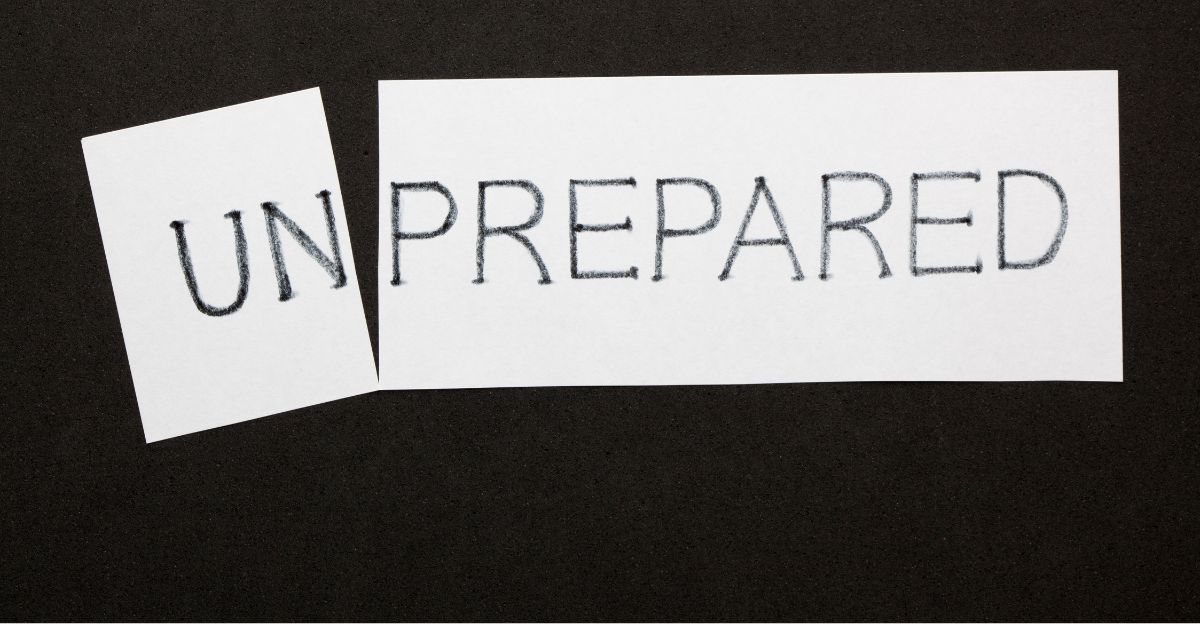
A job interview is one of those situations where every word counts. While your résumé may have impressed the recruiter enough to land you in the hot seat, what you say during the conversation can solidify or completely undermine your candidacy.
Many hiring managers make decisions in real time, and a careless response can derail what was otherwise a strong application. Career expert Suzy Welch reminds job seekers, “Every response must resonate. When in doubt, ask yourself: If it doesn’t, reconsider it”.
That’s why some answers are considered “sudden death.” They can shut down the interview almost instantly, no matter how talented or experienced you are.
The Risk of “Sudden Death” Answers

These dangerous responses are fatal because they create doubt in the interviewer’s mind about your professionalism, attitude, and cultural fit.
Employers don’t just hire skills; they hire people who represent their brand, work well within the team, and show commitment.
As one recruiter put it, “Employers hear these [sudden death] answers as ‘risk signals.’ You might leave too soon. You might not work hard enough. You might not have been worth keeping”.
Learning these red flag answers can save you from making a costly mistake.
1. “I Don’t Know Anything About This Company”

One of the biggest mistakes people make is entering an interview without knowing basic facts about the company.
When an interviewer asks, “What do you know about us?” and you respond with, “I don’t know anything,” it immediately signals a lack of effort.
Employers expect candidates to spend time learning about their mission, values, products, and even recent achievements. Failing to do so says you couldn’t be bothered to prepare.
Why It’s Dangerous

An employer wants someone genuinely excited about the role and the organization, not someone who blindly applies to every posting. A lack of research implies you’re not motivated or invested in this opportunity.
It suggests you’d accept the job for convenience rather than passion. A hiring manager quoted in The Economic Times put it bluntly: “He seems to be low on energy, does not show enthusiasm, and hasn’t researched about us. Probably neither serious nor willing. Reject”.
That impression can be enough for the hiring manager to politely end your chances, moving on to candidates with genuine curiosity and initiative.
2. “I Left My Last Job Because I Hated My Boss”

Criticizing a former boss, team, or company is another fatal mistake. Even if your reasons are valid, phrasing them harshly in an interview makes you look unprofessional and hostile.
Employers immediately wonder: “If they bad-mouth their last boss, how will they speak about us?”
A negative tone raises questions about your maturity, ability to resolve conflicts, and professionalism in workplace relationships.
The Better Approach

Instead of focusing on what you disliked, frame your departure in a constructive, forward-looking way.
According to Indeed Career Advice, “When answering questions about your previous employer, try to focus on what the current position offers that your previous one did not… Positive answers can also give the interviewer confidence that you will be a good addition to their company’s culture and that you would be unlikely to say anything negative about them in the future”.
Using this approach shows you’re motivated by goals, not grudges, reflecting maturity and professionalism.
3. “I Don’t Have Any Weaknesses”

When interviewers ask about weaknesses, they don’t expect perfection. Responding with “I don’t have any weaknesses” comes across as insincere or arrogant.
Everyone has areas to improve; denying this shows a lack of self-awareness.
Employers worry that someone unable to reflect on their flaws won’t be coachable or adaptable if challenges arise.
What They Want Instead

A stronger approach is highlighting a real but manageable weakness you’re actively working on.
Noted coach Caffeinated Kyle summarizes, “If you tell the truth, then you don’t have to have a good memory.” That doesn’t mean oversharing or dramatizing flaws, but demonstrating humility and a growth mindset.
Employers are much more impressed by self-aware and proactive candidates who are actively working on improving themselves.
4. “I Just Need a Job, Any Job”

When you tell an employer you’ll take “any job,” you communicate desperation instead of ambition.
While honesty might seem harmless, this response shows you’re not genuinely invested in this role or career path.
Employers want someone excited about this job, not a candidate simply trying to escape unemployment.
The Impression It Leaves

Saying you’ll “do anything” makes you look directionless and reduces your credibility. An interviewer may assume you’ll accept the role now but leave when another opportunity arises, creating higher turnover costs for the company.
Suzy Welch, CEO and Harvard-trained career expert, says: “From a recruiter’s perspective, such a response suggests that you are already plotting your departure before you even begin”.
Employers want to reassure you that you’re committed to the long term, not just filling time until something better comes.
5. “I Don’t Have Any Questions for You”

One major red flag in interviews occurs right at the end when the manager asks, “Do you have any questions for me?”
Responding with, “No, I don’t have any,” signals apathy. Future employers expect candidates to have thoughtful questions that show genuine curiosity about the role, team, and organization.
Not asking anything implies you either didn’t prepare or don’t care.
Turning It Into an Advantage

This moment is an opportunity to stand out. You show genuine engagement by preparing thoughtful questions, such as asking about the company’s growth plans or team culture.
“It’s crucial to articulate your circumstances more nuanced, showing that you understand their perspective,” advises Suzy Welch.
Asking zero questions wastes a valuable chance to demonstrate intellectual curiosity and enthusiasm.
6. “Money Is the Only Thing I Care About”

If, when asked why you want the job, you emphasize only the salary, you risk coming across as mercenary.
Compensation matters, but hiring managers need to see that your primary motivation is tied to the work, the mission, and the growth opportunities.
Leading with money makes you look like you’ll leave quickly for a slightly higher paycheck elsewhere.
A Better Strategy

When salary is discussed, strike a balanced response.
Emphasize your enthusiasm for the job responsibilities, the learning opportunities, and the chance to make an impact, while also noting that fair compensation is essential.
As with all “sudden death” answers, authenticity and professionalism win the day.
7. “I Don’t Know” to Behavioral Questions

Behavioral questions like, “Tell me about a time when you solved a problem under pressure,” are designed to reveal how you’ve acted in real situations.
If you respond, “I don’t know,” it suggests a lack of preparedness or experience.
Employers may see this as a red flag that you haven’t faced meaningful challenges or that you can’t recall how you handle pressure effectively.
How to Handle It Better

Instead of admitting defeat, prepare a handful of stories before the interview that showcase your achievements. Structure your answers using the STAR method (Situation, Task, Action, Result).
Suzy Welch recommends always being ready and authentic: “To maintain authenticity, which is always beneficial… [explain how] layoffs imparted a lesson I will always remember: the necessity of continuously expanding one’s skills through training, as the business landscape is ever-evolving”.
Demonstrating thoughtfulness and initiative is always better than leaving the question unanswered.
8. “I Plan to Be in Your Job Soon”

Ambition is good, but overconfidence can be a dealbreaker. When an interviewer asks about your five-year plan, responding with, “I’ll have your job,” risks sounding arrogant.
The comment may be a joke, but it often comes across as disrespectful.
Employers want ambitious people, but not those who seem eager to undermine hierarchy or chase promotions at someone else’s expense.
What They Prefer Instead

A better approach is to say you want to grow within the company, take on additional responsibilities, or develop leadership skills over time.
As Suzy Welch summarizes, “They [companies] want to know that you’re motivated, that you want to win, and that your goals align with theirs. Productivity and passion matter.”
Framing your career goals as collaborative and aligned with organizational growth makes a stronger impression.
The Importance of Self-Awareness

Self-awareness is key to avoiding “sudden death” answers. Interviewees must be mindful of what they say and how their words may be perceived.
Pausing for a moment before answering allows you to filter your thoughts and professionally express them.
A self-aware candidate communicates maturity, respect, and control, qualities employers highly value.
Protecting Your Chances of Success

Interviews are won or lost in the details. While technical skills and experience matter, how you communicate can reinforce your strengths or cancel them out.
Avoiding the eight “sudden death” answers doesn’t mean being scripted; it means being strategic, emotionally aware, and prepared.
“Every response must resonate,” emphasizes Suzy Welch, words worth remembering as you seek to move from candidate to employee.